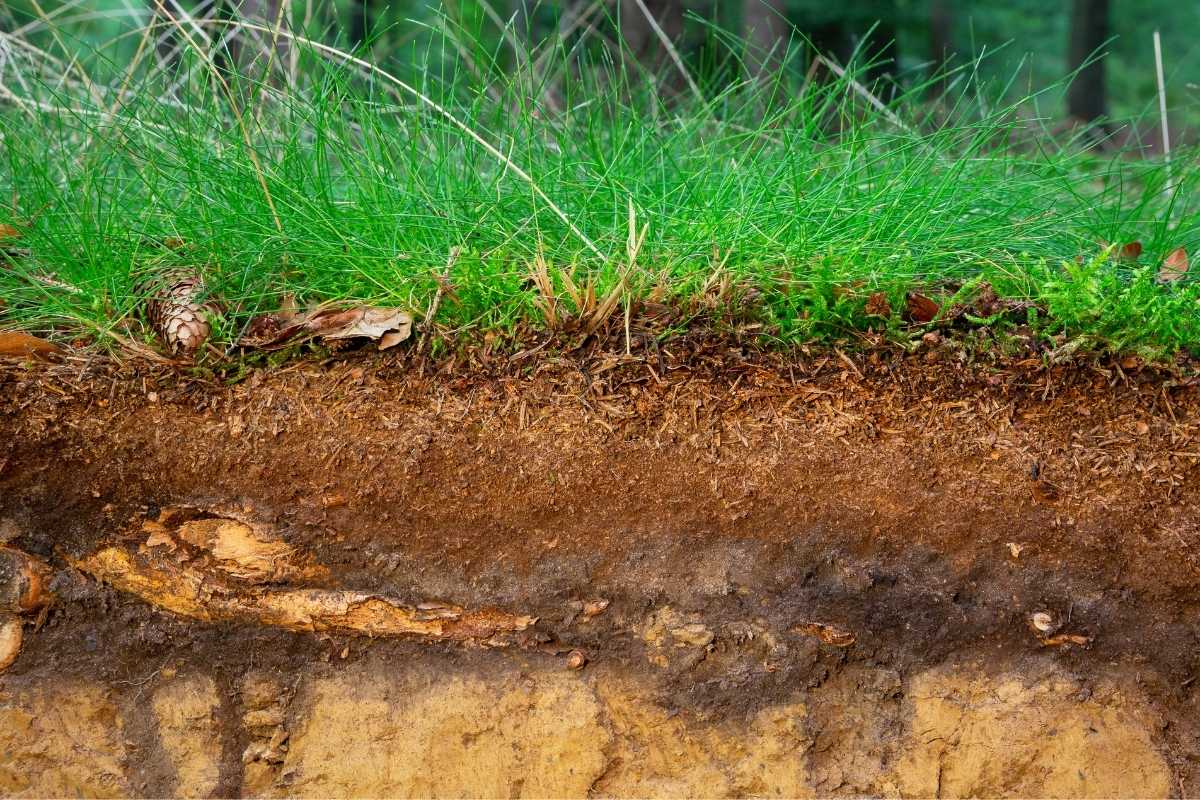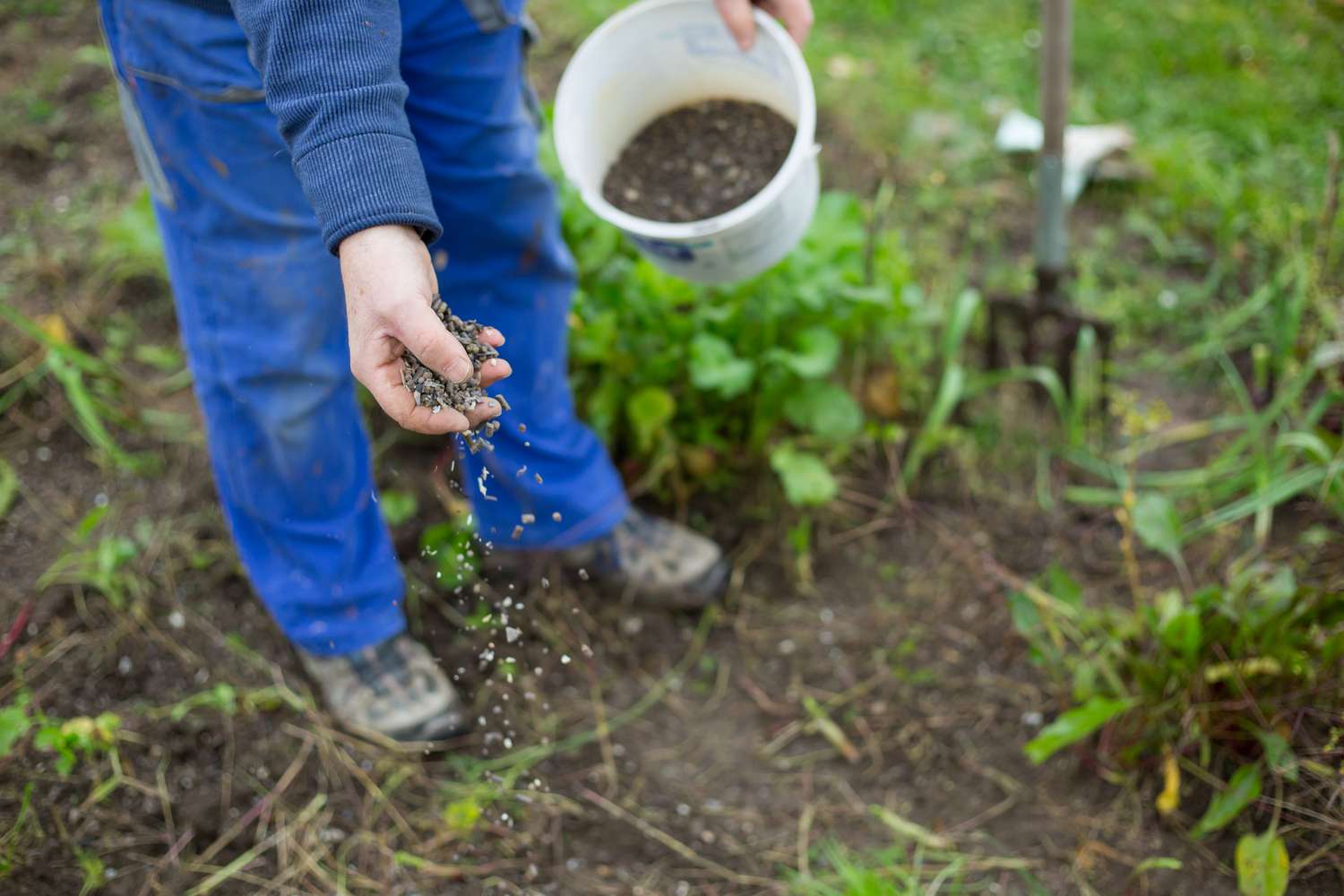Home>Gardening Basics>Understanding Soil>Why Is Volcanic Soil (Andisol) Very Fertile?


Understanding Soil
Why Is Volcanic Soil (Andisol) Very Fertile?
Published: February 12, 2024
Discover why volcanic soil, known as Andisol, is incredibly fertile and learn how it contributes to understanding soil fertility. Uncover the secrets of this unique soil type now!
(Many of the links in this article redirect to a specific reviewed product. Your purchase of these products through affiliate links helps to generate commission for Chicagolandgardening.com, at no extra cost. Learn more)
Table of Contents
Introduction
Introduction
Volcanic soil, also known as Andisol, is renowned for its exceptional fertility and ability to support lush vegetation. This type of soil is formed from volcanic ash and is prevalent in areas with a history of volcanic activity. The unique composition and properties of volcanic soil contribute to its fertility, making it highly sought after for agricultural purposes.
The formation of volcanic soil begins with the eruption of volcanoes, which release ash and other volcanic materials into the surrounding environment. Over time, these materials undergo weathering and decomposition, ultimately transforming into the rich, fertile soil known as Andisol. The presence of various minerals and organic matter in volcanic soil sets it apart from other soil types, providing a conducive environment for plant growth.
Volcanic soil is characterized by its ability to retain moisture and nutrients, making it an ideal medium for cultivating a wide range of crops. Its porous nature allows for efficient water drainage, preventing waterlogging and ensuring optimal aeration for plant roots. Additionally, the high nutrient content of volcanic soil, including essential elements such as phosphorus, potassium, and calcium, promotes robust plant growth and overall soil fertility.
The remarkable fertility of volcanic soil has made it a valuable resource for agricultural activities, supporting bountiful harvests and sustainable farming practices. Its ability to sustain diverse plant species and contribute to ecosystem health underscores the significance of volcanic soil in various regions across the globe.
As we delve deeper into the composition and properties of volcanic soil, we will unravel the factors that make Andisol exceptionally fertile and explore the mechanisms that drive its agricultural productivity. Understanding the intricate nature of volcanic soil is crucial for harnessing its full potential in agricultural practices and environmental conservation.
Composition of Volcanic Soil
Volcanic soil, or Andisol, is formed through the weathering and decomposition of volcanic materials, resulting in a distinct composition that sets it apart from other soil types. The primary components of volcanic soil include volcanic ash, pumice, and other volcanic ejecta, which undergo various processes to create a fertile and nutrient-rich medium for plant growth.
One of the key constituents of volcanic soil is volcanic ash, which is comprised of fine particles resulting from volcanic eruptions. These particles are rich in minerals such as silica, aluminum, iron, and calcium, contributing to the soil’s fertility and nutrient content. The porous nature of volcanic ash allows it to retain moisture and provide a favorable environment for microbial activity, essential for nutrient cycling and soil health.
Another significant component of volcanic soil is pumice, a lightweight volcanic rock with high porosity. Pumice contributes to the soil’s aeration and drainage capabilities, preventing compaction and waterlogging while promoting root development and nutrient uptake by plants. Its presence enhances the overall physical properties of volcanic soil, creating an optimal environment for agricultural productivity.
Additionally, volcanic soil may contain various minerals and organic matter derived from volcanic activity, enriching its nutrient profile and fostering a conducive habitat for soil microorganisms. The diverse array of minerals present in volcanic soil, including phosphorus, potassium, and magnesium, supports plant growth and development, making it an ideal substrate for cultivating a wide range of crops.
The complex interplay of volcanic ash, pumice, minerals, and organic matter in volcanic soil contributes to its exceptional fertility and suitability for agriculture. The unique composition of Andisol provides a fertile foundation for plant growth, enabling farmers to harness its potential for sustainable and productive cultivation practices.
Physical Properties of Andisols
Andisols, or volcanic soils, exhibit distinctive physical properties that distinguish them from other soil types, contributing to their exceptional fertility and suitability for agricultural use. These properties are a result of the soil’s composition and formation processes, which imbue it with unique characteristics essential for supporting plant growth and ecosystem health.
One of the notable physical properties of Andisols is their high porosity, attributed to the presence of volcanic ash and pumice. The porous nature of volcanic soil allows for efficient water infiltration and retention, preventing water runoff and promoting moisture availability for plant roots. This characteristic also facilitates aeration within the soil, crucial for root respiration and microbial activity, thereby enhancing overall soil health and productivity.
Furthermore, Andisols possess a granular structure, characterized by the presence of aggregates that contribute to soil stability and resistance to compaction. This granular arrangement allows for optimal root penetration and development, enabling plants to access nutrients and water effectively. The soil’s structural stability also supports sustainable agricultural practices, minimizing erosion and promoting long-term soil fertility.
Volcanic soils are known for their lightweight nature, owing to the inclusion of pumice, a porous volcanic rock. This lightweight quality enhances the workability of the soil, making it easier to till and manage, thereby facilitating agricultural operations. The soil’s friable texture also promotes root proliferation and facilitates the incorporation of organic amendments, further enhancing its fertility and productivity.
Additionally, Andisols exhibit a high cation exchange capacity (CEC), a measure of the soil’s ability to retain and exchange essential nutrients for plant uptake. This property is attributed to the presence of minerals such as allophane and imogolite, which contribute to the soil’s nutrient-holding capacity and support sustained nutrient availability for crops. The high CEC of volcanic soil underscores its role in sustaining robust plant growth and agricultural productivity.
The unique physical properties of Andisols, including porosity, granular structure, lightweight nature, and high CEC, make them an invaluable resource for agriculture, providing a fertile and resilient foundation for sustainable cultivation practices.
Chemical Properties of Andisols
Andisols, commonly known as volcanic soils, possess distinctive chemical properties that contribute to their exceptional fertility and suitability for agricultural purposes. These properties are a result of the soil’s unique composition, characterized by the presence of volcanic ash, minerals, and organic matter, which collectively influence nutrient availability and soil health.
One of the defining chemical properties of Andisols is their high levels of soil organic matter. The presence of organic material, derived from plant residues and microbial activity, enriches the soil with essential nutrients and promotes microbial diversity. This organic matter contributes to soil fertility, enhances nutrient cycling, and supports the development of a vibrant soil ecosystem, crucial for sustainable agricultural productivity.
Furthermore, Andisols are known for their high nutrient content, particularly in essential elements such as phosphorus, potassium, and calcium. The volcanic origins of these soils result in the accumulation of minerals and nutrients, providing a fertile substrate for plant growth. The availability of these nutrients supports vigorous plant development and sustains agricultural productivity, making Andisols highly desirable for cultivating a wide range of crops.
Another significant chemical property of Andisols is their acidic nature, attributed to the presence of aluminum and iron oxides derived from volcanic materials. The soil’s acidity influences nutrient availability and microbial activity, shaping the soil’s overall fertility and plant growth potential. While the acidic nature of Andisols may require specific management practices, it also contributes to the unique characteristics that make these soils highly productive for certain crops.
Additionally, Andisols exhibit a high capacity for retaining and exchanging cations, essential nutrients required by plants for growth. The presence of minerals such as allophane and imogolite contributes to the soil’s high cation exchange capacity (CEC), allowing it to hold and release nutrients as needed by plants. This property enhances the soil’s fertility and supports sustained nutrient availability, contributing to the productivity of agricultural systems.
The distinctive chemical properties of Andisols, including high organic matter content, nutrient richness, acidity, and high CEC, underscore their significance in agricultural contexts, providing a fertile and dynamic foundation for sustainable farming practices.
Biological Activity in Andisols
Andisols, also known as volcanic soils, exhibit vibrant biological activity that plays a pivotal role in sustaining soil fertility and supporting diverse ecosystems. The unique composition and physical properties of Andisols create an environment conducive to microbial diversity, nutrient cycling, and symbiotic relationships, fostering a dynamic soil ecosystem essential for agricultural productivity and environmental health.
One of the key aspects of biological activity in Andisols is the presence of diverse microbial communities. These microorganisms, including bacteria, fungi, and actinomycetes, engage in essential soil processes such as organic matter decomposition, nitrogen fixation, and nutrient mineralization. The microbial diversity in Andisols contributes to soil health, enhances nutrient availability, and supports plant growth, highlighting the critical role of biological activity in sustaining soil fertility.
Moreover, Andisols harbor symbiotic relationships with mycorrhizal fungi, which form associations with plant roots, facilitating nutrient uptake and enhancing plant resilience. These symbiotic interactions contribute to the overall nutrient cycling and ecosystem dynamics within volcanic soils, promoting sustainable agricultural practices and supporting diverse plant communities.
Biological activity in Andisols also influences soil organic matter dynamics, as microbial decomposition processes contribute to the formation of stable organic compounds. This organic matter enrichment enhances soil structure, nutrient retention, and water-holding capacity, fostering a fertile environment for plant growth and ecosystem sustainability.
Furthermore, the biological activity in Andisols contributes to the transformation and cycling of essential nutrients, such as nitrogen and phosphorus, vital for plant development. Microbial processes, including nitrogen fixation and nutrient mineralization, play a crucial role in sustaining soil fertility and supporting agricultural productivity in volcanic soil systems.
The intricate web of biological interactions within Andisols underscores the significance of microbial diversity and activity in shaping soil fertility and ecosystem resilience. Understanding and harnessing the biological dynamics of volcanic soils is essential for sustainable agriculture and environmental stewardship, highlighting the integral role of biological activity in supporting vibrant and productive soil ecosystems.
Conclusion
Volcanic soil, or Andisol, represents a remarkable natural resource characterized by its exceptional fertility and unique properties that support diverse ecosystems and sustainable agriculture. The composition of volcanic soil, comprising volcanic ash, pumice, minerals, and organic matter, contributes to its distinct physical and chemical properties, making it highly conducive to plant growth and soil health.
The physical properties of Andisols, including high porosity, granular structure, lightweight nature, and high cation exchange capacity, create an optimal environment for root development, nutrient retention, and sustainable agricultural practices. These properties underscore the resilience and workability of volcanic soils, making them invaluable for cultivating a wide range of crops and supporting long-term soil productivity.
Furthermore, the chemical properties of Andisols, characterized by high organic matter content, nutrient richness, acidity, and high cation exchange capacity, play a pivotal role in sustaining soil fertility and promoting robust plant growth. The nutrient-rich profile of volcanic soils, combined with their capacity for nutrient retention and exchange, contributes to their significance in agricultural contexts and ecosystem sustainability.
Biological activity within Andisols, driven by diverse microbial communities and symbiotic relationships, enhances nutrient cycling, organic matter dynamics, and essential soil processes, fostering a vibrant soil ecosystem crucial for agricultural productivity and environmental health. The intricate web of biological interactions within volcanic soils underscores the integral role of microbial diversity and activity in shaping soil fertility and ecosystem resilience.
In conclusion, the exceptional fertility and dynamic properties of volcanic soil, or Andisol, position it as a vital component of sustainable agriculture and environmental stewardship. Understanding the intricate composition, physical and chemical properties, and biological dynamics of volcanic soil is essential for harnessing its full potential in supporting vibrant and productive soil ecosystems, thereby contributing to global food security and ecosystem sustainability.






